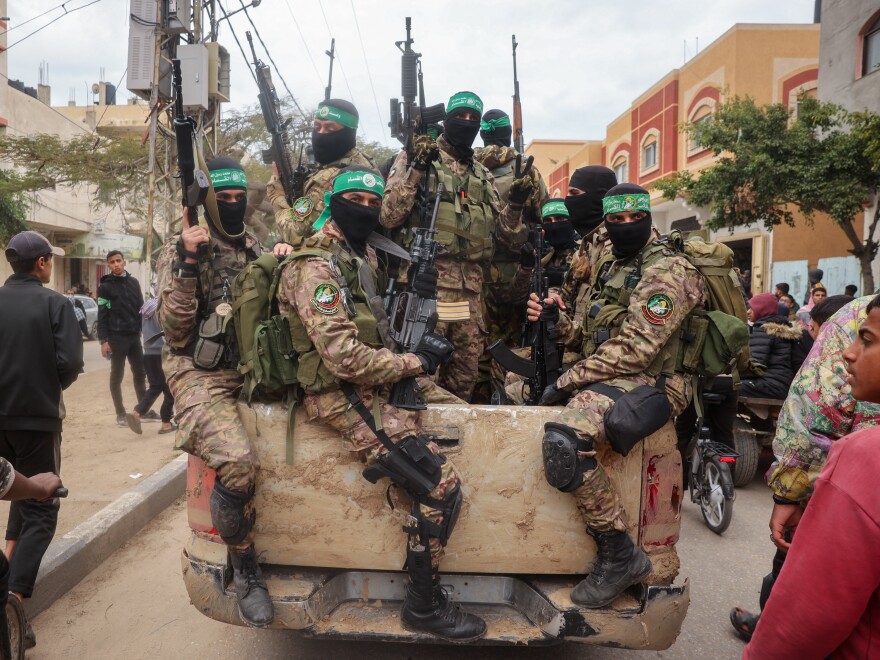Israel’s Tel Aviv Hamas is facing a challenge almost two years after launching the surprise attack that ignited the conflict with Israel.
Israel has hammered its combat force, its charismatic leadership has all but been killed, and Arab nations are putting unprecedented pressure on its ceasefire negotiators to relinquish its weapons and its authority.
“Hamas is facing its worst crisis yet,” stated Esmat Mansour, a Palestinian political commentator and former fighter residing in the West Bank who maintains contact with Hamas officials. “Hamas faces pressures from all directions: from Israel, from the street, from the West and from Arab countries.”
Israel’s most recent threat to besiege Gaza City, after forcing hundreds of thousands of Palestinians to leave the city and putting soldiers inside to battle in what Israel views as one of Hamas’ final significant strongholds, is the source of the greatest urgent pressure. This week, military officials urged hospitals to prepare for evacuation, and Prime Minister Benjamin Netanyahu directed military planners to expedite preparations for the Gaza City operation.
The world’s hunger specialists have declared that famine conditions have already spread to Gaza, and civilians there are bearing the brunt of Israel’s war, including bombardment, displacement, and acute food shortages.
In a statement last month, the 22 Arab League nations demanded for the first time that Hamas relinquish control of Gaza and turn up its weapons.
These tensions reached a peak this week when Hamas agreed to terms the U.S. had initially suggested that would maintain Israeli soldiers’ substantial territorial control in Gaza and put aside its initial objections to an Egyptian and Qatari ceasefire proposal. Israel is thinking about how to react.
Hamas is aware of Israel’s superior military might and is working to eliminate it as a political and military power in Gaza. According to Mansour, Hamas’ plan is to cling onto its only negotiating chip—the Israeli hostages it still has—and hope that Israel’s situation will shift in its favor.
“Time plays to Hamas’ benefit, not to Netanyahu’s benefit,” Mansour asserts. “The [Israeli] military is worn out, Israeli protests are growing, the government may fall, and there may be international pressure, particularly due to the pictures of hunger, with Europe putting pressure on the United States.” “There is nothing worse than surrender,” declares Hamas. Why should I give up? I’m sticking to my guns, and perhaps things will work out in my favor and I’ll have a chance to negotiate from a stronger position.”
According to Mansour, the “main goal of Hamas is to exist and only to exist.”
Hamas believes it has popular support on the Arab street
At the moment, Hamas is working to strengthen ties with Arab regimes.
Ibrahim Al-Madhoun, a Palestinian analyst from Gaza who is residing in Istanbul and connected to Hamas, claims that “the main disagreement between Hamas and the Arab countries is the armed struggle that Hamas employs in its clashes with the Israeli occupation.” “But all the Arab states understand that Palestine is a vital cause and Hamas is the most important player in the cause the Arab nations love Hamas.”
Hamas confuses Arab sympathy for Gaza’s suffering with Hamas support, according to Samir Ghattas, an Egyptian security researcher who focuses on Hamas and Gaza.
“The hostages are Hamas’ only weapon. “Hamas has no cards at all without the hostages,” Ghattas stated. “There is no future for Hamas in Gaza as the people there blame Hamas for what’s happened, after they blame Israel and Netanyhu for the killing and destruction.”
Hamas is increasing its guerrilla warfare
Although the majority of Hamas’ military capabilities have been destroyed by Israel, the organization still operates as isolated guerrilla groups in Gaza.
A squad of Hamas terrorists rushed an Israeli military post in southern Gaza on Wednesday, sparking close-quarters combat in an unusual action. The Israeli military claims that the majority of the Hamas militants were killed.
Israel believes a soldier may have been kidnapped by Hamas. The ambush shows that Hamas is still prepared to fight to the death.
Mohammed Ahmad, 35, thinks Hamas cannot afford to give up its weaponry at this time in Gaza City.
“No one will accept during a battle and a continuous fight with the occupation to surrender their weapons,” Ahmad asserts. “The Israelis will not leave Gaza if Hamas surrenders its weapons.”
The cost of the battle, according to 22-year-old Amjad Saleh, is being borne by civilians rather than Hamas.
“Hamas is completely absent. He claims that we are punished because their commanders are either overseas or operating in the tunnels beneath Gaza. “The plan for displacement is coming,” he states.
Mass displacement is Palestinians’ biggest concern now
In order to seize control of Gaza City and expel hundreds of thousands of Palestinians to southern Gaza, close to the Egyptian border, Israel’s military is requesting tens of thousands additional soldiers. Eventually, Israel wants to relocate as many Palestinians as it can to other nations.
To prevent the larger worry of a huge exodus of Palestinians from Gaza into Egypt or elsewhere, that may be one of the main reasons Egypt is helping to suggest a new ceasefire and for Hamas to endorse it.
From London, Abu Bakr Bashir provided a report. This article was submitted by Nuha Musleh from the West Bank’s Ramallah.
Copyright 2025 NPR






